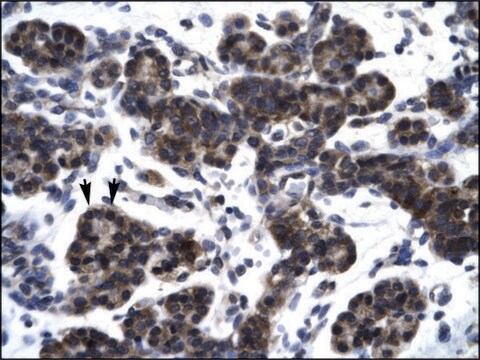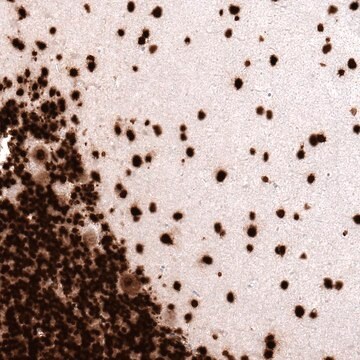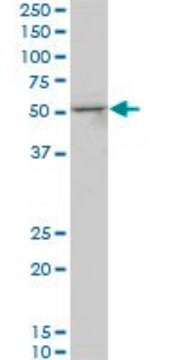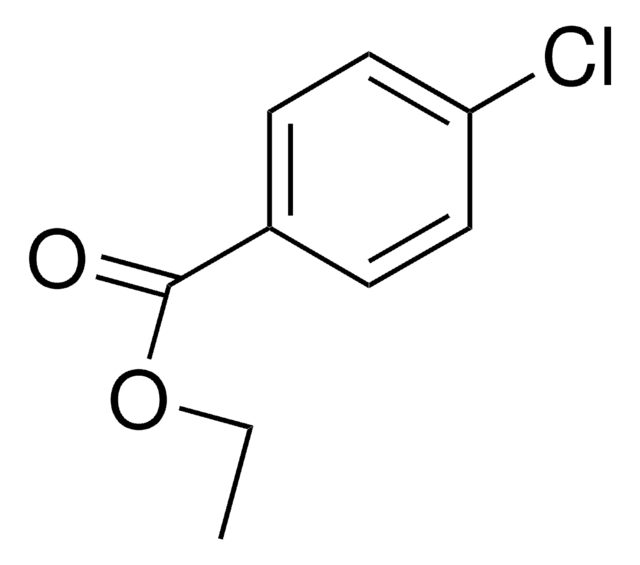SAB1400160
Monoclonal Anti-SMAD3 antibody produced in mouse
clone 7F3, purified immunoglobulin, buffered aqueous solution
Synonym(s):
Anti-DKFZP586N0721, Anti-DKFZp686J10186, Anti-HSPC193, Anti-HsT17436, Anti-JV152, Anti-MADH3, Anti-MGC60396, Anti-Smad 3
About This Item
Recommended Products
biological source
mouse
conjugate
unconjugated
antibody form
purified immunoglobulin
antibody product type
primary antibodies
clone
7F3, monoclonal
form
buffered aqueous solution
species reactivity
human, rat
technique(s)
immunohistochemistry (formalin-fixed, paraffin-embedded sections): suitable
indirect ELISA: suitable
proximity ligation assay: suitable
western blot: 1-5 μg/mL
isotype
IgG1κ
UniProt accession no.
application(s)
research pathology
shipped in
dry ice
storage temp.
−20°C
target post-translational modification
unmodified
Gene Information
human ... SMAD3(4088)
General description
Immunogen
Sequence
VCVNPYHYQRVETPVLPPVLVPRHTEIPAEFPPLDDYSHSIPENTNFPAGIEPQSNIPETPPPGYLSEDGETSDHQMNHSMDAGSPNLSPNPMSPAHNNLDL
Application
Biochem/physiol Actions
Physical form
Disclaimer
Not finding the right product?
Try our Product Selector Tool.
recommended
Storage Class Code
10 - Combustible liquids
Flash Point(F)
Not applicable
Flash Point(C)
Not applicable
Certificates of Analysis (COA)
Search for Certificates of Analysis (COA) by entering the products Lot/Batch Number. Lot and Batch Numbers can be found on a product’s label following the words ‘Lot’ or ‘Batch’.
Already Own This Product?
Find documentation for the products that you have recently purchased in the Document Library.
Our team of scientists has experience in all areas of research including Life Science, Material Science, Chemical Synthesis, Chromatography, Analytical and many others.
Contact Technical Service








